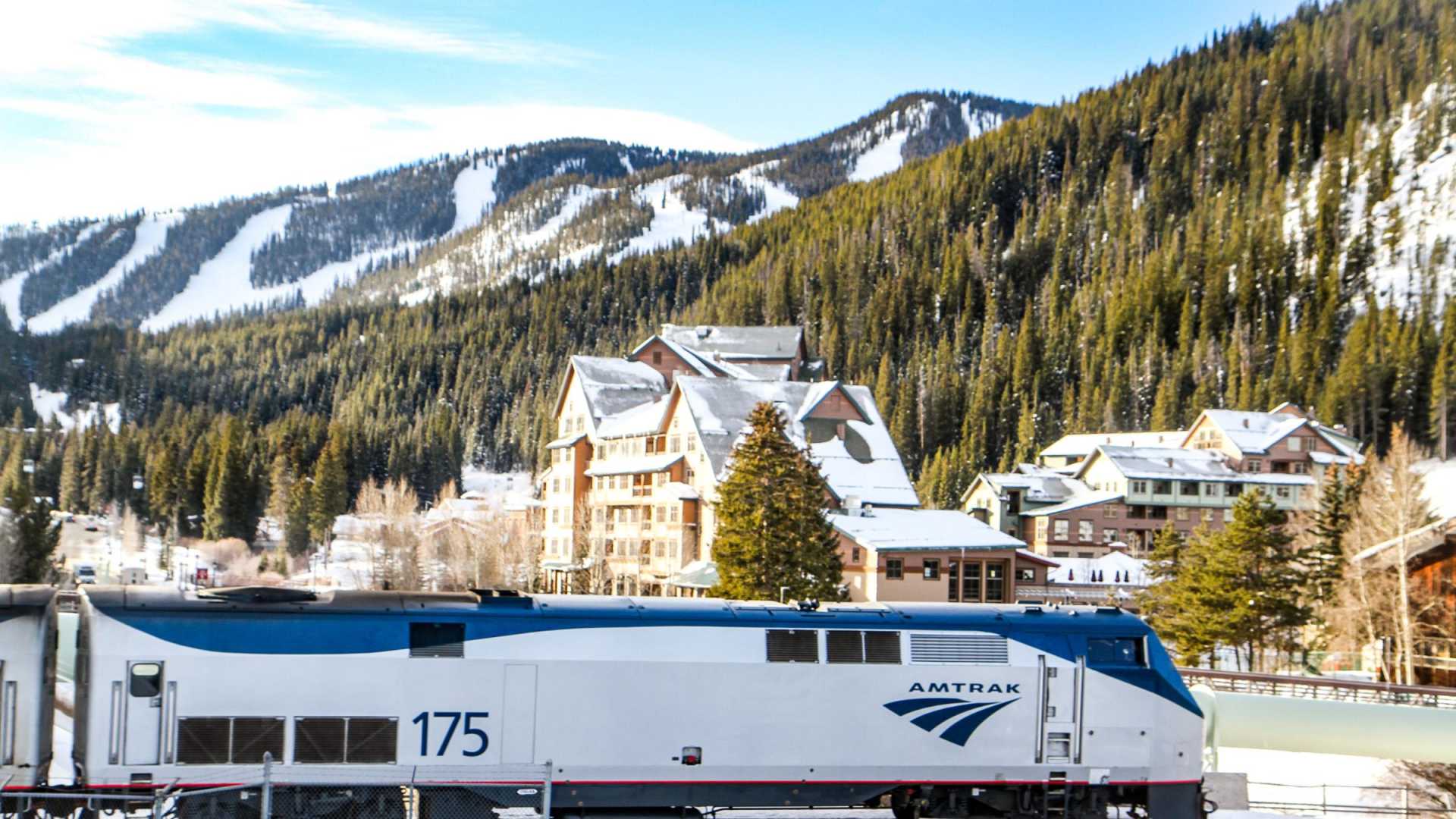News
Amtrak’s Ski Train Spurs New Colorado Mountain Rail Development

WINTER PARK, Colorado — Amtrak‘s Winter Park Ski Train has experienced a surge in popularity for the 2024-25 ski season, prompting plans for expanded rail services in the region. With tickets starting at just $19 and new stops, including Fraser, the demand for the service has exceeded expectations, boasting over 41,000 riders during the current season, according to officials.
Cody Hedges, senior rail and transit planner with the Colorado Department of Transportation (CDOT), shared these figures and details of a new project, Colorado Mountain Rail, at a meeting with the Grand County commissioners on April 1. The project aims to revitalize a rail corridor linking Denver and Craig, a line that has been dormant for nearly 60 years.
The Grand County Board of Commissioners unanimously passed a resolution endorsing the initiative, known as the Support of Mountain Rail Stations in Local Jurisdictions Within Grand County. This resolution signals a commitment to coordinate with municipalities and CDOT to establish local stations along the proposed routes.
In his presentation, Hedges outlined goals for the revival, including improving reliability and multimodal mobility while connecting communities throughout the corridor. Hedges stated, “Our objectives include economic vitality, a transition from coal-generated power, and meeting greenhouse gas emissions goals.”
He noted the success of Amtrak’s ski train supports the feasibility of CDOT’s proposal, which would enhance access to two major ski resorts in Colorado — Steamboat Ski Resort and Winter Park Resort. Currently, only coal trains operate in the Yampa Valley, which encompasses Steamboat Springs and Craig, but Hedges emphasized that increased coal traffic reduction in the valley has opened the door for new opportunities.
Funding for Colorado Mountain Rail will come from two Senate bills — SB24-230, imposing an oil and gas fee, and SB24-184, creating a rental car fee. Despite opposition from the American Car Rental Association against the rental car fee, the funding streams remain intact.
As CDOT considers various service options, one of the proposed lines would connect Denver to Granby, replicating the existing California Zephyr route. Hedges identified this connection as a priority, describing it as “low-hanging fruit” for implementation due to existing infrastructure. The initial phase would involve building head tracks in Granby for trains returning to Denver.
Future phases may expand to include a line through the Yampa Valley, vital for enhancing access to Steamboat Ski Resort. Hedges emphasized, “We have two distinct markets, so why don’t you connect them?”
Local town officials in Hot Sulphur Springs and Kremmling are also being approached to support the project, which has already garnered backing from Winter Park, Fraser, and Granby. Hedges reiterated the importance of integrating the project within the community, stating, “We want to integrate ourselves into the community, not force ourselves into the community.”
The Moffat Tunnel, which was constructed through the Continental Divide in the late 1920s, also plays a crucial role in this rail proposal. The tunnel runs adjacent to Winter Park Resort and is under the operational lease of Union Pacific, recently renewed for 25 more years. This lease includes provisions for hazardous materials management and fire prevention.
After Hedges’ presentation, questions arose regarding the financial logistics of the rail project. Commissioner Merrit Linke expressed concerns about potential reallocations of highway maintenance funds and required reassurances on the project’s funding sources. Hedges clarified that rail funds are separate from highway funds and, thus, the highway maintenance budget will not be affected. The project can also tap into federal and state grants alongside Colorado Department of Local Affairs funds.
Linke further questioned how passenger trains would be prioritized on shared tracks with freight trains, which can lead to delays. Hedges noted that the short distance of the proposed routes will aid in maintaining punctuality. “Because you have less potential for delay, you have less potential for cascading delays,” he said. Operators will be incentivized to adhere to timetables, and CDOT is also seeking funding for rockfall mitigation measures to swiftly address incidents that could disrupt service.
Future steps include finalizing an operator for the service, with Hedges confirming that the selection process is underway. Unlike the operator’s role, the decision on station stops will remain under CDOT’s jurisdiction.
As CDOT seeks to build on the success of the Winter Park ski train, officials plan to model initial services to serve the tourist market before establishing additional roundtrips for local commuters. Hedges emphasized the importance of coordinating schedules with Bustang, the state’s intercity bus service.
With county commissioners backing the Colorado Passenger Rail initiative, CDOT now aims to seek similar resolutions from Kremmling and Hot Sulphur Springs as the project moves forward.












